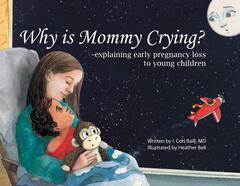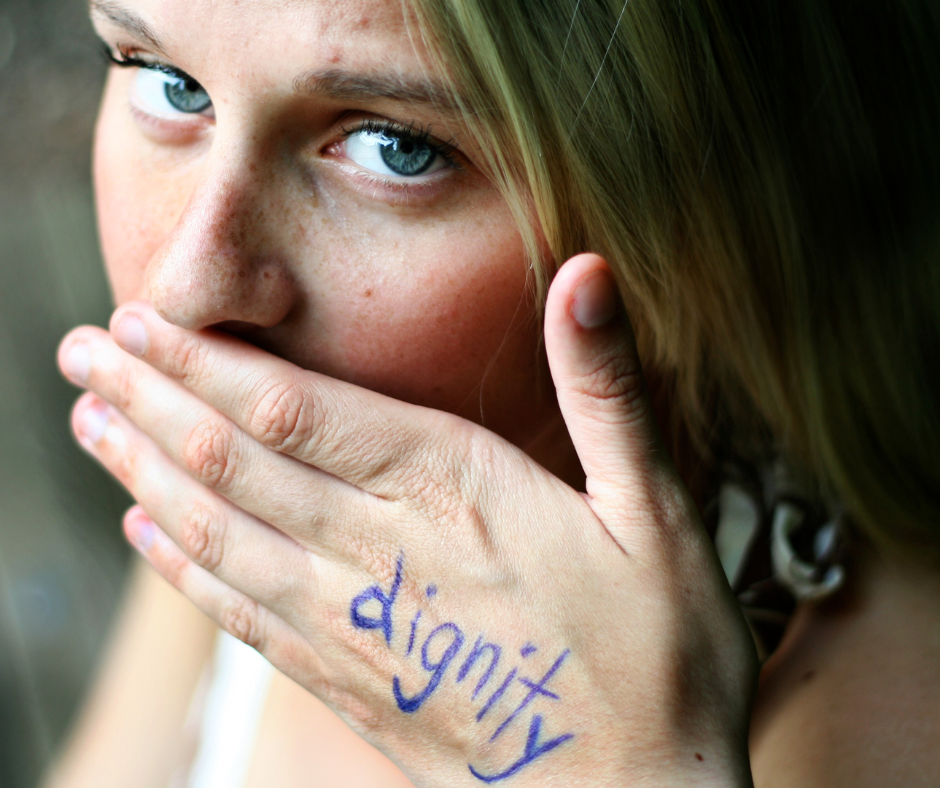 By Maria Servold EPLA Executive Director One of the hardest things families experience during a miscarriage is how to explain it to other siblings, especially if they were already excited for a baby to join the family. Children can have a hard time understanding “where the baby went” and why it won’t be born like they were expecting. These conversations are difficult, but we honor the lives of our miscarried babies by talking about them with their siblings. Remember, there is no script for these conversations. Honesty and simplicity will go a long way toward helping children understand a loss. That said, many parents may find it helpful to look through a book with their children that explains miscarraige in a kid-friendly way. Last year, I interviewed Dr. I. Cori Baill, an OB-GYN and author of a beautiful children’s book about miscarriage, called Why is Mommy Crying? After suffering a miscarriage early in her medical career, Baill said she found herself looking for resources to help her explain the loss to the two small children she already had. “I was very surprised at the lack of resources, starting with my religion, which said there was no ceremony, there was no prayer, there was no ritual,” she said. I was really surprised that there was not much out there to help me explain [miscarriage] to my children.” Afterward, she said, she had a “germ of an idea” about a children’s book that could help explain early pregnancy loss. Baill said she watched and waited, certain someone would write and publish such a book. “I had this idea for a children’s book that I thought was really needed,” she said. “I didn’t think I was the right person to write it. I didn’t think I was an expert. I kept my eye out for the book; kept looking for someone to write it.” But no one did. So, eventually, Baill wrote it herself. In addition to helping explain miscarriage itself to children, Baill said she hopes the book can serve as a springboard for discussion among parents and their children. In the back of the book, she provides a list of resources for helping children through grief, for example. There are other children’s books available to help parents discuss miscarriage and infant dealth, like, We were gonna have a baby, but we had an angel instead, Our Heaven Baby (with an explicitly Christian focus), A Rainbow Baby Story (designed to tell children about a sibling who died before they were born), and Dancing on the Moon (focusing on infant death). We hope these titles give you a starting point when talking about miscarriage with children, and that you share them with other families experiencing loss.
2 Comments
By Emily Carrington, EPLA Executive Director
Miscarriage is bloody, intimate, and physically mortifying, and for those reasons, it is not something we like to talk about. But we cannot protect a woman’s privacy at the expense of her dignity. To leave her to suffer alone, in a pile of her own blood, is not privacy, is not protection, is not care. It is neglect. There is no dignity in neglect; only deep pain, isolating heartache, and unnecessary shame. As the founding president and now executive director of EPLA I find myself talking about miscarriage a lot. Sometimes, I’m speaking to young mothers who are accustomed to birth stories and more intimate conversations about the body, but other times I’m talking to older gentlemen, who I presume… are not accustomed to such talk. I am not interested in making people blush. I am also not interested in parading women and their humble (and often gruesome) stories in front of others in the name of awareness. This has brought me to think about what is “dignity.” Dignity and propriety matter in society. Often, a miscarriage is a physically gruling and bloody experience that doesn’t fit polite conversation. And while I have told my own miscarriage story to thousands of people over the last seven years, there are parts of it I often keep to myself. Keeping parts of our story private is okay. But leaving others to suffer the same bloody mess without the proper resources is not okay. To restore dignity and propriety to this situation, we must recognize that a woman’s body is tasked with delivering a dead baby and we must meet her needs in that very vulnerable moment. On the bathroom floor with bath towels and a tupperware container isn’t good enough. If you or a loved one is experiencing a miscarriage and have chosen to deliver at home, email us at [email protected]. Please include the name and mailing address of the recipient. We will ship a large miscarriage care kit anywhere in the United States. If you or a loved one have already experienced a miscarriage or will be undergoing a D&C procedure, please email us requesting a small care kit. If you would like to assemble your own kit, here is a list of recommended items:
Other pain and comfort management suggestions:
By Nick Carrington EPLA Editor Recently, Britney Spears announced that she had experienced a miscarriage. At EPLA our hearts break for her and Sam Asghari, the father. In her post, Spears noted that they perhaps “should have waited to announce until we were further along…”, a common sentiment among families that miscarry. It should surprise no one that families feel that way, and there is nothing wrong if that’s the approach that parents want to take. But there are advantages to announcing a pregnancy early, even if it ends in tragedy. One advantage is that if something happens, a community of loved ones will know the family is hurting and why. Part of feeling isolated is that others, even those close to the loss parents, don’t know their loved ones are struggling. After the loss, it may be difficult to reach out for help because doing so can feel like burdening the people they care about. Another advantage is that more people have the chance to celebrate the child, even as they never get to interact with him or her. Children lost in the womb should be mourned, yes, but also celebrated. They were people, part of a family, if only for a short time. Of course, this approach means that loss parents may have to tell more people than they want about their loss. It can be exhausting to restate something that causes such pain. Regardless of what you decide, resist the urge to second guess yourself. No matter when you announce a pregnancy, there are advantages and disadvantages, and if your family suffers through a miscarriage, those details are some of the least important. Get the help you need – physically, emotionally, and spiritually. For Spears and Asghari, we hope they have peace and that a community rises up to ease their burdens as they grieve. Nick Carrington is an Editor for the EPLA and Associate Professor of Professional Writing at Cedarville University
|
Archives
December 2023
Categories
All
|



 RSS Feed
RSS Feed